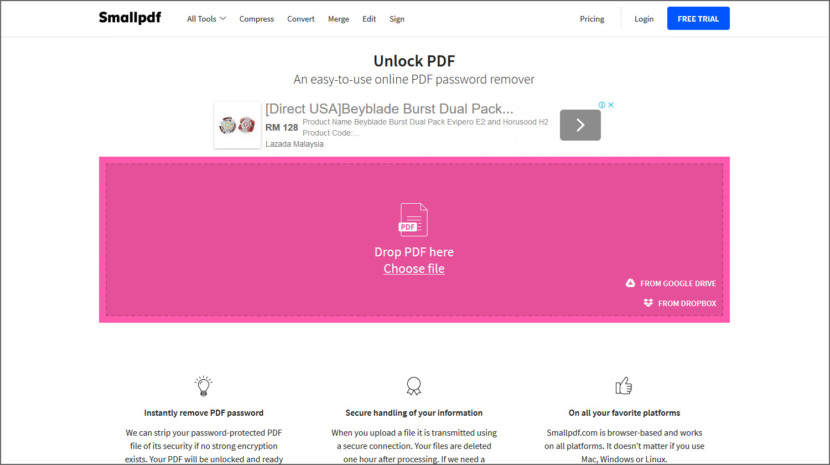In today’s digital age where we have countless online accounts and services to manage, it can be quite burdensome to remember all our passwords. This is where the feature of password saving on web browsers becomes invaluable. However, there are instances where this feature may not work as intended, and users find themselves unable to get Chrome to remember passwords again. In this blog post, we will explore different methods to troubleshoot and fix this issue.
Whether you are a casual internet user or a professional who relies on various online platforms, having Chrome remember passwords can save you time and frustration. It allows you to effortlessly log in to your favorite websites without having to recall complex combinations of alphanumeric characters. If you are currently unable to utilize this feature, it can be quite inconvenient to manually enter passwords every time you visit a website.
What’s Needed
- Google Chrome web browser installed on your device
- A stable internet connection
- Basic computer knowledge
Video Tutorial:
What Requires Your Focus?
- Checking Chrome settings
- Clearing browser cache and cookies
- Disabling third-party extensions
- Updating Chrome to the latest version
Option 1. How to Enable Password Saving
Before delving into troubleshooting methods, it is essential to ensure that password saving is enabled in Chrome. Follow these steps:
- Open Chrome and click on the three-dot menu in the top-right corner of the browser window.
- Select “Settings” from the dropdown menu.
- Scroll down and click on “Passwords.”
- Toggle on the “Offer to save passwords” option if it’s not already enabled.
- Additionally, toggle on the “Auto sign-in” option for seamless logins.
Pros:
- Enabling password saving ensures convenience and time-saving when logging in to websites.
- It eliminates the need to remember complex passwords for multiple platforms.
- Chrome securely stores passwords, protecting them against unauthorized access.
Cons:
- Storing passwords in the browser might be a security concern if your device is compromised.
- If you forget the master password, it might be challenging to recover your saved passwords.
- Auto fill-in may not always work correctly, causing frustration during login attempts.
Option 2. How to Clear Browser Cache and Cookies
Clearing your browser cache and cookies can resolve various issues, including problems with Chrome remembering passwords. Follow these steps to clear cache and cookies:
- Open Chrome and click on the three-dot menu in the top-right corner of the browser window.
- Select “More Tools” from the dropdown menu.
- Click on “Clear browsing data.”
- In the popup window, select the “Basic” tab.
- Choose “Cookies and other site data” and “Cached images and files.”
- Click on “Clear data” to clear the cache and cookies. Note that this action will sign you out of most websites.
Pros:
- Clearing cache and cookies can improve browser performance and fix various browsing-related issues.
- It removes any stored cookies, which could potentially conflict with Chrome’s password-saving feature.
Cons:
- Clearing browser data may sign you out of websites and require you to re-enter your login credentials.
- Some preferences and website settings may also get reset.
- Certain websites may load slower initially due to cache being cleared.
Option 3. How to Disable Third-Party Extensions
Extensions installed on Chrome can sometimes interfere with Chrome’s ability to remember passwords. Follow these steps to disable third-party extensions:
- Open Chrome and click on the three-dot menu in the top-right corner of the browser window.
- Select “More Tools” from the dropdown menu.
- Click on “Extensions.”
- Toggle off the switch next to each extension to disable them temporarily.
- Restart Chrome and check if the password-saving feature is working.
Pros:
- Disabling extensions can help identify specific extensions that may be causing conflicts with password saving.
- It provides a quick way to troubleshoot issues without permanently uninstalling extensions.
Cons:
- Extensions often offer useful features, and disabling them may limit certain functionalities.
- Disabling extensions might not always solve the problem, requiring further troubleshooting.
Option 4. How to Update Chrome to the Latest Version
Using an outdated version of Chrome can result in compatibility issues and bugs. To ensure you have the latest version of Chrome, follow these steps:
- Open Chrome and click on the three-dot menu in the top-right corner of the browser window.
- Select “Settings” from the dropdown menu.
- Click on “About Chrome” in the left sidebar.
- Chrome will automatically check for updates and install them if available. If prompted, restart Chrome to apply the updates.
Pros:
- Updating Chrome can resolve compatibility issues with websites and extensions.
- Newer versions often include bug fixes, enhancing overall browser performance.
- Regular updates keep your browser secure against the latest threats.
Cons:
- Some updates may introduce new bugs or conflicts that were not present in previous versions.
- The updating process may consume additional bandwidth and time, especially for slower internet connections.
Why Can’t I Get Chrome to Remember Passwords Again
Despite trying the troubleshooting methods mentioned above, there could be situations where Chrome still doesn’t remember passwords. In such cases, here are three alternative solutions:
- Use a dedicated password manager like LastPass or Dashlane. These tools securely store all your passwords and can automatically fill them in for you when needed. They offer additional features such as password generation and syncing across different devices.
- Manually store your passwords in a secure document on your device. This method requires you to remember and enter passwords yourself, but it provides an offline and localized solution. Ensure that the document is encrypted or password-protected.
- Consider using biometric authentication methods like fingerprint or facial recognition if your device supports them. These methods eliminate the need to remember passwords and provide a seamless login experience.
Implications and Recommendations
- It is essential to strike a balance between convenience and security when utilizing password-saving features. Always use unique and complex passwords for important accounts and enable two-factor authentication whenever possible.
- Regularly updating Chrome and clearing cache and cookies can improve browser performance and resolve various issues, including problems with password saving.
- Be cautious while using third-party extensions and only install those from trusted sources. Disable or uninstall extensions that you no longer need.
The Bottom Line
Chrome’s ability to remember passwords is a valuable feature that can streamline your browsing experience. By following the troubleshooting methods outlined in this blog post, you should be able to resolve any issues preventing Chrome from remembering passwords. However, if all else fails, consider alternative solutions such as dedicated password managers or manually storing passwords.
5 FAQs about Getting Chrome to Remember Passwords Again
Q1: Why is Chrome not saving my passwords?
A1: Chrome may not save passwords due to several reasons, including disabled password-saving settings, issues with browser cache and cookies, conflicting third-party extensions, or outdated browser versions.
Q2: Are password managers secure?
A2: Yes, reputable password managers like LastPass and Dashlane use encryption to secure your passwords. They offer additional security features like two-factor authentication and secure password sharing.
Q3: Can I recover saved passwords if I forget the master password?
A3: Unfortunately, forgetting the master password for password manager applications can be challenging to recover. It is crucial to choose a strong master password that you can remember.
Q4: Will updating Chrome erase my saved passwords?
A4: Updating Chrome should not erase saved passwords. However, it is always recommended to have backups of your important data, including passwords, before performing any updates or modifications.
Q5: Can I use biometric authentication instead of remembering passwords?
A5: Yes, devices that support biometric authentication methods like fingerprint or facial recognition can be used as password alternatives. These methods provide secure and convenient logins.





